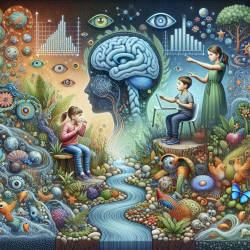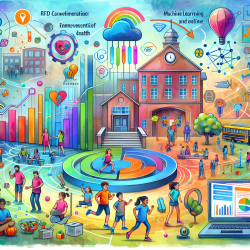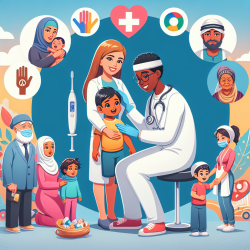Introduction
In the realm of speech-language pathology, the integration of holistic approaches is pivotal for fostering improved therapeutic outcomes, particularly in children. The recent research article titled "A New Integrative Theory of Brain-Body-Ecosystem Medicine: From the Hippocratic Holistic View of Medicine to Our Modern Society" offers a comprehensive perspective on the interconnectedness of human health and ecosystem well-being. This blog aims to explore how practitioners can leverage these insights to enhance their therapeutic practices and encourage further research.
The Brain-Body-Ecosystem Connection
The research underscores the importance of viewing human health through the lens of a "walking ecosystem," where the brain, body, and environment are intricately linked. This integrative approach suggests that safeguarding human health necessitates a harmonious relationship with the ecosystem, echoing the ancient views of Hippocrates.
For practitioners, this means recognizing the impact of environmental factors on a child's development and therapeutic progress. By understanding the bidirectional interactions between the brain and body, as well as their connection to the ecosystem, therapists can tailor interventions that are not only effective but also sustainable.
Implementing Research Insights in Therapy
To apply these insights, practitioners can consider the following strategies:
- Holistic Assessment: Incorporate environmental and lifestyle factors into assessments to gain a comprehensive understanding of a child's health and development.
- Interdisciplinary Collaboration: Work with other professionals, such as environmental scientists and public health experts, to address the broader ecosystem influences on health.
- Data-Driven Interventions: Utilize heart rate variability (HRV) as a diagnostic tool to monitor stress levels and overall well-being, allowing for more targeted interventions.
- Promote Ecosystem Health: Advocate for policies and practices that support a healthy environment, recognizing its role in human health.
Encouraging Further Research
The article highlights the potential of brain-body-ecosystem medicine to revolutionize therapeutic practices. However, further research is needed to explore the specific mechanisms through which environmental factors influence cognitive and emotional development in children. Practitioners are encouraged to contribute to this growing body of knowledge by conducting studies that examine the interplay between environmental health and therapeutic outcomes.
Conclusion
Integrating the principles of brain-body-ecosystem medicine into speech-language pathology can lead to more effective and holistic therapeutic approaches. By considering the broader environmental context, practitioners can enhance their understanding of child development and improve therapy outcomes. To delve deeper into the original research, please follow this link: A New Integrative Theory of Brain-Body-Ecosystem Medicine: From the Hippocratic Holistic View of Medicine to Our Modern Society.










